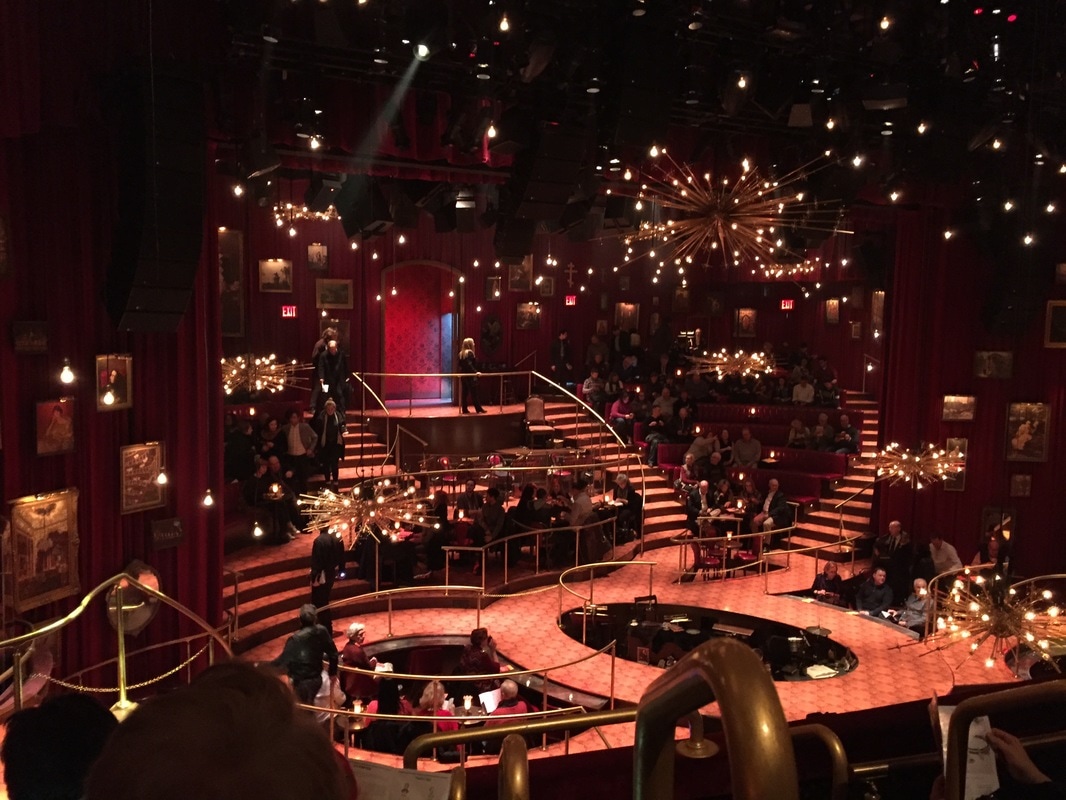 The Tony Awards are Sunday! Here's What Should Happenby Randi / June 7, 2019
The Tony Awards are Sunday! Here's What Should Happenby Randi / June 7, 2019Full disclosure, before seeing the new musical version of The Curious Case of Benjamin Button I assumed it was going to be hilarious. Really, you’re taking the decent-but-not-loved Brad Pitt movie and turning it into a musical? Good luck with that. I assumed it would go the route of recent screen-to-stage West End musical disasters like Made in Dagenham and Bend It Like Beckham. But I could not have been more wrong. No, as the lot of us sitting in the ‘Little’ black box studio of the Southwark Playhouse pathetically blowing our noses and sobbing during Act II can attest, I could not have been more wrong. Rather than lazily taking a known property and shoving in songs here and there as everyone else seems to do and calling it a ‘new musical’ instead of a ‘garbage fire’, the Button team did what so few can do and made something meaningful and worthwhile. They’ve taken the original F. Scott Fitzgerald story and reset it as a Cornish coastal folk tale, with an underpinning of mysticism and with inventive folk music that successfully builds an entire world, and gives poignant, impressive new life to this story.
Having its world premiere at London’s Southwark Playhouse these past few weeks, Button continued this very exciting and very inspiring new trend of original British scores being on the up and up after about a decade of swimming in the shallow end. Although folk music isn’t the kind I’d be listening to at home, this score from Jethro Compton and Darren Clark served the show well and helped convey the necessary mythology and emotion in a way that classic showtunes, for one, couldn’t have. Making Button a Celtic-inspired legend was a smart creative decision, bringing the tale from its jazz-age Americana roots and establishing it instead on the Cornwall coast, with its UK traits of the stiff upper lip, the hardworking fishermen, the omnipresent pubs.
For those of you not up on your F. Scott short stories or who somehow didn’t see the 2008 Brad Pitt – Cate Blanchett – Taraji P. Henson absolute ROMP of a movie (it’s not it’s sad) (but really good) (I know I said above it wasn’t beloved but like it was really solid and honestly thinking about the ending makes me quite emotional like old lady Cate holding the baby version of her former love as it dies???? whaaat??) (Oh ps SPOILERS just there before), Benjamin Button is this cursed child (not related to Harry Potter) born as an old man who then spends his life aging in reverse. I have to admit I’m not up on my Effe Scott Fitzy but in the movie, he’s just a creepy old-man-looking baby-sized 80-year-old or what have you, but in the stage version, he pops out of his OBVIOUSLY DISTRAUGHT mother a full-size, full-talking, full-thinking 70-year-old man. (Which yeah you understand why his mother would jump off the cliffs but I think her song “Davey Jones’ Locker” should be cut or trimmed, like yes you just had a full-grown-gramps instead of a baby and I’m sorry but we don’t feel enough sympathy for you right off the bat to connect fully with your downward spiral.)You’re probably thinking, um how did they do this on stage? And the answer is with puppetry, with puppets made out of, well, garbage, pretty much (wicker baskets and lots of plastic bottles, hooray for reusing (recycling isn’t as good as we were all told, please try to actually reduce your plastic use and as here, reuse! PSA)) and impressive maneuvering by the hard-working five-person ensemble. It was really impressive stuff, and funny when it was plastic-bottle children later on.
Speaking of the hard-working ensemble, these five actors and musicians, all onstage mostly the whole show, weave in and out of various characters and play multiple instruments as they tell this tale in a most impressive manner. Well one actor, James Marlowe, does very little weaving since he plays Benjamin for the majority of his life (they need a few more visual aids to show the passing decades, like maybe losing the mustache when he talks about not needing to shave anymore, adding a few youthful accessories or playing with wigs, things like that). And one weave was my biggest pet peeve of the show since it was completely unnecessary: Benjamin’s love interest is named Elowen, and she’s played winningly in Act I by Philippa Hogg. In Act II, as Elowen grows older and Benjamin grows younger, Rosalind Ford takes over as Elowen. The passing of the character between the two actresses is actually done in quite a lovely way – but it’s not only unnecessary, it takes away from the character development. For one, Philippa created the bond with the audience, especially in the wonderful, moving “The Moon and the Sea”, and so it’s jarring to switch halfway through. For another, more important reason, um, Philippa and Rosalind both look about the same age, so making one play only the old lady version is suuuuuuper weird and it feels wrong. It’s a shame because Rosalind’s big Act II song as Elowen is truly stunningly delivered, but for the good of the overall show, Phillippa should play Elowen the whole time (Rosalind has enough to do otherwise whereas Philippa in Act II felt underused). We’re supposed to be focusing on how Benjamin is changing in odd ways, not having the ‘normal’ people do that.
Aside from that quibble, Compton’s clever direction was a feat, and despite the tiny stage and the tiny black room, you could sense the wind and waves crashing against the shores of Cornwall. Despite a slow start that would be much helped in the next production by trimming one of Benjamin’s parents’ songs (the weakest material is over with right at the start at least), they built this world pretty quickly, drawing the audience in fully and keeping us there, on board for all the twists and heartbreaks of the story. I loved the a cappella Celtic theme song of the show and how well it captured the right mood (although I think it had one too many reprises?). Even all the references to space travel paid off in a lovely, surprising, poignant way. A lesser quality show would have drawn eyerolls at, e.g., the reprise of the super-fun-every-action-is-connected song “A Matter of Time” when it tries to pull that sad as hell shit at the end, but instead we were all gutted along with the characters. It really worked. And then as the heartbreak keeps building in a really beautiful way, the audience, like I said, was sobbing. I can’t believe what this little show managed to pull off, but it was an extraordinary first effort at mounting this new musical.
INFORMATION
I have to give a shout-out to whoever designed the programmes, which for some reason only cost £1. They were the best programmes ever. Actually interesting notes from the creatives? A FULL BREAKDOWN of what it cost to mount this production and how they raised the money?? Show everyone how it’s done, son.
While this initial run is now over, hopefully it will come back in a slightly revised but no less fantastic form soon.







